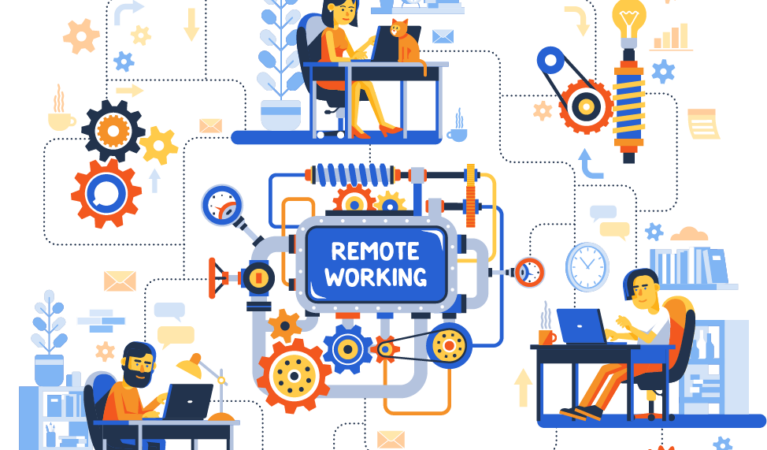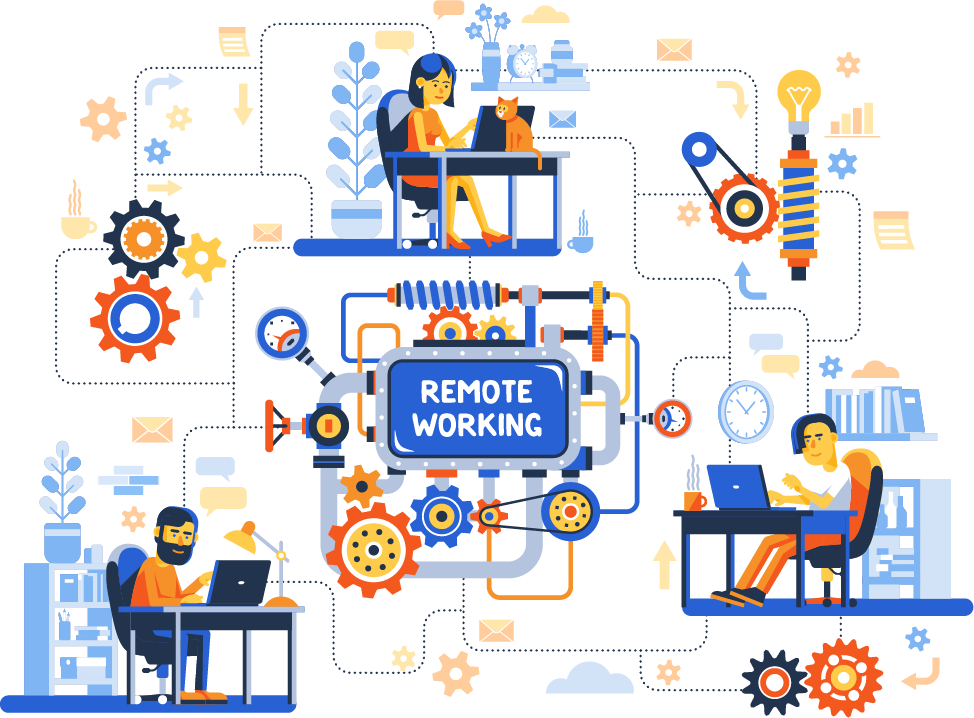
Because of COVID-19 and social distancing, remote work has become a global theme. And with remote work comes isolation for some. While everyone handles seclusion differently, some people are having a particularly hard time with it.
Segregation from others, especially in these times, can cause serious mental and emotional health issues for anyone who isn’t a complete introvert. In the past, these problems might have been overcome by means that aren’t currently possible. Many restaurants, cafes, bars, gyms, and salons are closed, making it more difficult to overcome loneliness and anxiety.
So, if you find yourself struggling because you work alone, what can you do? Here are some ideas that can help keep your head clear and maintain productivity and health.
1. Talk to a Medical Professional
First and foremost, if being isolated leads to depression, anxiety, or irrational thoughts, reach out to a medical professional. Call your doctor or therapist and talk about what’s going on. You are not alone, and there are steps you can take to improve your situation with the help of someone who understands.
If you or someone you know is experiencing suicidal thoughts, call the National Suicide Prevention Lifeline: 1-800-273-8255
2. Ask a Colleague to Join a Virtual Office
If you want to recreate your previous office environment, consider asking a coworker, colleague, or friend if they would be willing to work with you in a virtual office or meet up digitally. You can use online video conferencing tools to stay connected while working with someone else who’s in the same boat.
At Workbox, we’ve implemented a Mental Health webinar for members to ask questions about how to stay mentally healthy during this time and interact with others. We also have “social happy hours” on Zoom with the sole purpose of professionals staying connected in a relaxed digital environment.
Sit in your virtual office all day, part of the day, or even just for lunch or happy hour, depending on how much work you’re able to get done. Virtual meetings can take some fine-tuning but provide a pretty powerful way to combat isolation.
3. Schedule Time for Walks Outside in Your Community
You need to get outside and go for walks—it is one of the few safe activities that all of us can still partake in at any time. If you find that you’re not getting outdoors often enough, pencil this into your schedule. You’ve certainly got a task management system for your job or business, so add a daily walk to your agenda.
Especially for people who live in urban areas, experiences of nature have been shown to provide numerous mental health benefits. Getting outside with birds and vegetation lower stress, depression, and anxiety. Plus, you will have the opportunity to interact with others in your neighborhood while maintaining physical distance.
Furthermore, if you have enough space and weather permits, consider working outdoors at least part-time to leverage some of these benefits while still getting stuff done. When you can, sit out on your balcony or porch with your laptop and soak up the sunshine.
4. Reframe Your Thoughts
We are definitely living in uncertain times. Some people are worried about contracting or spreading the virus, others are unemployed, and nobody seems to have solid answers about what will come of all of this. But, if you can reframe your thoughts, it can make a world of difference.
Take introverts, for example. Many people are using the situation as an excuse to avoid meetings, seminars, and other social interactions—they’re using this as a time to increase productivity and reach personal goals they didn’t previously have time for.
While some people are panicking over the idea that we will never go back to normal, Sonya Renee Taylor has another take on it.
In business, brands are advised to spread the message of unity and hope. In life, we can do the same. Keep your thoughts positive to embrace what you do have right now, which brings us to the next tip.
5. Limit Your Social Media and News Intake
While it can be good to stay informed about what’s going on in the world, and social media is designed to make you feel connected, you may want to give it a rest. Right now, too much news and social media consumption can, unfortunately, fuel loneliness, anxiety, and depression.
Excessive use of social media has been shown to contribute to anxiety, stress, depression, and loneliness. And when you spend too much time listening to and reading “bad news” like what’s been prevalent during the pandemic, it can contribute to your stress levels.
So, pay attention to how you feel when you’re plugged in. If you’re excited to learn that your sister got a new cat, for example, cool—use the opportunity to interact. If you feel anxious about the political debates and COVID-19 death toll, however, it’s time to unplug. Go do something uplifting instead.
6. Focus on Self-Care, Diet, and Exercise
When nobody is around to watch, it’s easy to lay around in your sweatpants all day and eat whatever you want. While it may be nice in the beginning, failure to care for yourself can take a toll on your wellbeing. Instead, get into a routine that makes you feel better about yourself.
Dress to impress, eat like you’re preparing to run a marathon, and make use of that exercise equipment you’ve had in storage (not at the same time—you’ll have pay to have your suit dry cleaned if you do that). Invest in yourself and do the things that make you feel good.
7. Get on the Phone, FaceTime, or Zoom
One of the best and simplest ways to combat the isolation that comes with working from home is to talk. During quarantine (and any other time), you can pick up the phone and call your coworkers, colleagues, family, and friends just to check-in. You’ll find that you’re not alone and this will help ease the burden of too much time alone for all involved.
I know you just read that too much media consumption should be avoided. But in defense of technology, internet communication can actually combat depression, loneliness, self-esteem, and perceived social support.
So, if there’s someone you haven’t heard from in a while, take a moment just to reach out and ask how they’re doing. Get on Messenger or shoot someone a text. Invite a friend to a video chat. Remind yourself and others that we’re all in this together.
Final Thoughts
You are not alone. Many of us feel isolated right now. As we move toward a new way of living and working, we are all in this together. Keep your goals in mind and, even in a virtual world, it’s essential to surround yourself with people and things that remind you that you’re part of a bigger picture. Keep doing your part!
See more COVID-19 response resources.



